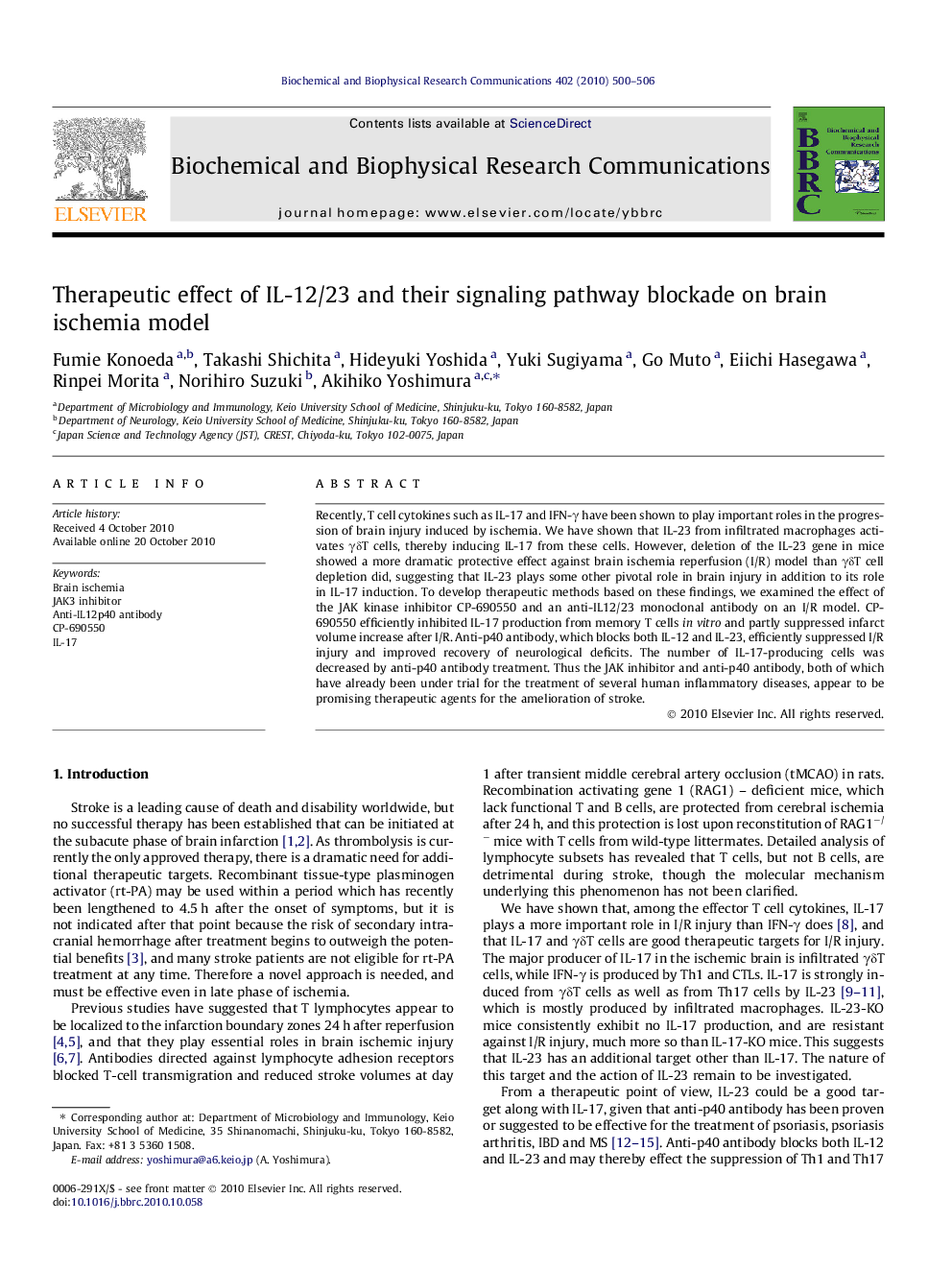| Article ID | Journal | Published Year | Pages | File Type |
|---|---|---|---|---|
| 1931401 | Biochemical and Biophysical Research Communications | 2010 | 7 Pages |
Recently, T cell cytokines such as IL-17 and IFN-γ have been shown to play important roles in the progression of brain injury induced by ischemia. We have shown that IL-23 from infiltrated macrophages activates γδT cells, thereby inducing IL-17 from these cells. However, deletion of the IL-23 gene in mice showed a more dramatic protective effect against brain ischemia reperfusion (I/R) model than γδT cell depletion did, suggesting that IL-23 plays some other pivotal role in brain injury in addition to its role in IL-17 induction. To develop therapeutic methods based on these findings, we examined the effect of the JAK kinase inhibitor CP-690550 and an anti-IL12/23 monoclonal antibody on an I/R model. CP-690550 efficiently inhibited IL-17 production from memory T cells in vitro and partly suppressed infarct volume increase after I/R. Anti-p40 antibody, which blocks both IL-12 and IL-23, efficiently suppressed I/R injury and improved recovery of neurological deficits. The number of IL-17-producing cells was decreased by anti-p40 antibody treatment. Thus the JAK inhibitor and anti-p40 antibody, both of which have already been under trial for the treatment of several human inflammatory diseases, appear to be promising therapeutic agents for the amelioration of stroke.
Research highlights► The IL-23/IL-17 axis has been shown to play important roles in the development brain ischemia injury. ► Blockage of IL-23 by anti-p40 antibody or IL-23 signaling by a JAK inhibitor were therapeutic for brain ischemia model. ► The number of IL-17-producing cells was decreased by anti-p40 antibody treatment.
